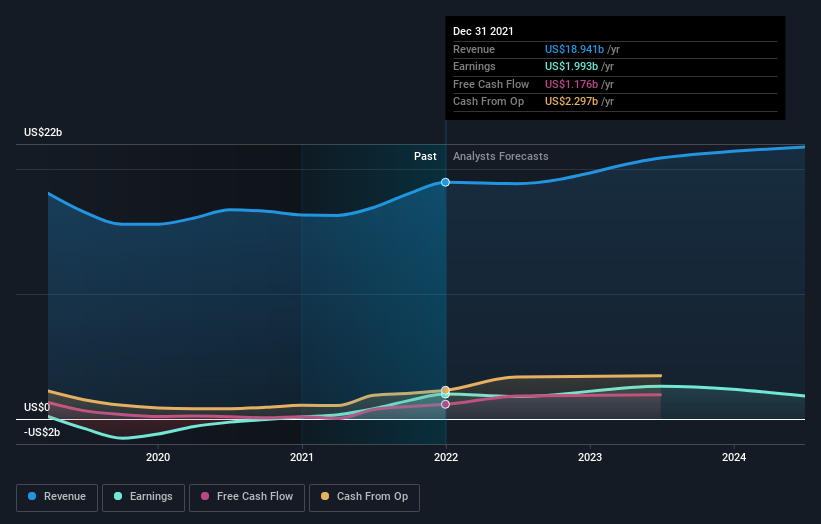Further weakness as Western Digital (NASDAQ:WDC) drops 3.8% this week, taking five-year losses to 37%
Ideally, your overall portfolio should beat the market average. But in any portfolio, there will be mixed results between individual stocks. So we wouldn't blame long term Western Digital Corporation (NASDAQ:WDC) shareholders for doubting their decision to hold, with the stock down 43% over a half decade. We also note that the stock has performed poorly over the last year, with the share price down 35%. Shareholders have had an even rougher run lately, with the share price down 27% in the last 90 days.
Given the past week has been tough on shareholders, let's investigate the fundamentals and see what we can learn.
Check out our latest analysis for Western Digital
While the efficient markets hypothesis continues to be taught by some, it has been proven that markets are over-reactive dynamic systems, and investors are not always rational. By comparing earnings per share (EPS) and share price changes over time, we can get a feel for how investor attitudes to a company have morphed over time.
During five years of share price growth, Western Digital moved from a loss to profitability. That would generally be considered a positive, so we are surprised to see the share price is down. Other metrics may better explain the share price move.
The revenue fall of 2.5% per year for five years is neither good nor terrible. But if the market expected durable top line growth, then that could explain the share price weakness.
You can see below how earnings and revenue have changed over time (discover the exact values by clicking on the image).
Western Digital is well known by investors, and plenty of clever analysts have tried to predict the future profit levels. So it makes a lot of sense to check out what analysts think Western Digital will earn in the future (free analyst consensus estimates)
What about the Total Shareholder Return (TSR)?
We'd be remiss not to mention the difference between Western Digital's total shareholder return (TSR) and its share price return. Arguably the TSR is a more complete return calculation because it accounts for the value of dividends (as if they were reinvested), along with the hypothetical value of any discounted capital that have been offered to shareholders. Its history of dividend payouts mean that Western Digital's TSR, which was a 37% drop over the last 5 years, was not as bad as the share price return.
A Different Perspective
While the broader market gained around 2.5% in the last year, Western Digital shareholders lost 35%. However, keep in mind that even the best stocks will sometimes underperform the market over a twelve month period. Unfortunately, last year's performance may indicate unresolved challenges, given that it was worse than the annualised loss of 6% over the last half decade. Generally speaking long term share price weakness can be a bad sign, though contrarian investors might want to research the stock in hope of a turnaround. I find it very interesting to look at share price over the long term as a proxy for business performance. But to truly gain insight, we need to consider other information, too. Take risks, for example - Western Digital has 4 warning signs we think you should be aware of.
But note: Western Digital may not be the best stock to buy. So take a peek at this free list of interesting companies with past earnings growth (and further growth forecast).
Please note, the market returns quoted in this article reflect the market weighted average returns of stocks that currently trade on US exchanges.
Have feedback on this article? Concerned about the content? Get in touch with us directly. Alternatively, email editorial-team (at) simplywallst.com.
This article by Simply Wall St is general in nature. We provide commentary based on historical data and analyst forecasts only using an unbiased methodology and our articles are not intended to be financial advice. It does not constitute a recommendation to buy or sell any stock, and does not take account of your objectives, or your financial situation. We aim to bring you long-term focused analysis driven by fundamental data. Note that our analysis may not factor in the latest price-sensitive company announcements or qualitative material. Simply Wall St has no position in any stocks mentioned.

